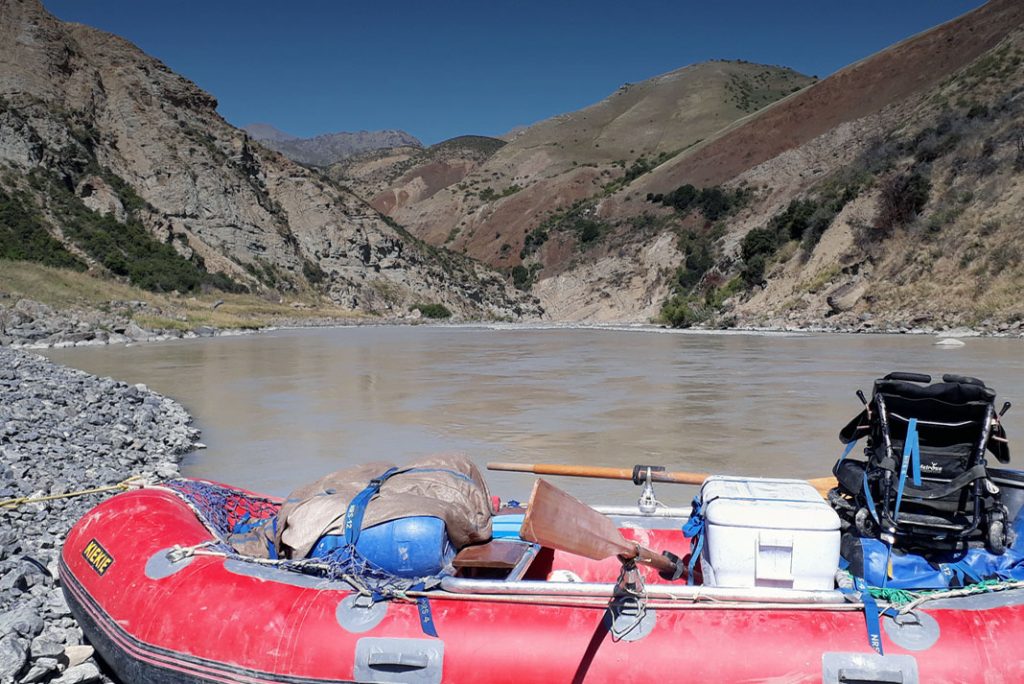The International Rafting Federation (IRF) recognises the need to make raft racing available to as wide a number of people as possible. As such, the IRF is delighted to announce that after many months of intensive work, it has fulfilled its commitment to launch a comprehensive, safe and internationally supported Para Rafting program.
A Para Rafting Committee was appointed in October 2020 to direct and approve the process of finalising the Rules, Codes and Classification Systems for Para Rafting. The committee consists of a wide range of extremely well-qualified participants who through personal experience are well acquainted with the unique challenges faced by the adaptive rafting community including former Para-Olympians, global para sports policy writers and para rafters.
The comprehensive policies and procedures are now available to guide member nations and organisations in setting up and running Para Rafting events. In addition, these documents will guide them and their athletes through the necessary classification procedures. We encourage members to start running local events, when pandemic restrictions allow, so as to get Para Rafting well and truly off to a flying start.
The aim of the IRF’s Para Rafting is in two streams. The first is aimed at general competitions, to include as wide diversity of abilities as possible (Stream 1). The second is aimed at World and Continental Championships, and to work towards one day being included in the Paralympics (Stream 2). As a new para sport all IRF Para Rafting rules, policies and procedures are open to evolution, review and change at any point in time.
Being a team sport also sets rafting apart from many other para sports. Therefore, the IRF is using a functional classification system more common in para team sports (like wheelchair rugby) where greater participation of competitors can be encouraged by providing opportunities for teams with different abilities to compete against each other in a reasonably fair way.
The IRF recognises that every impairment is different and will affect the individual to a greater or lesser extent. For example, someone who has lost three limbs will be fundamentally disadvantaged compared to someone who has a visual impairment. The mix of impairments potentially within one team could be significantly different to that of another team and to race such teams against each other could be inherently unfair.
Our classifications therefore assess the impact of a range of impairment on an individual’s functional abilities to participate in the sport of rafting. A point system focused on the competitor’s functional abilities is enforced to ensure fair competition.
The IRF had hoped to run the first Para Rafting World Rafting Championships this year, however, the uncertainty that Covid-19 is still inflicting on the world has led us to postpone this project to 2022.
Thanks must go to Jezza Williams of the Para Rafting Committee for the enormous amount of extra time he put into assisting us in realising this project. We look forward to one day seeing him compete in Para Rafting.
Find more details including rules, safety guidelines and classification system here on our website: internationalrafting.com/racing/para-rafting/
#thisisrafting #strongertogether
—————————————————————————–
About the International Rafting Federation:
The International Rafting Federation (IRF) is recognised as the official world governing body for rafting. Every year, the IRF organises the World Rafting Championship (WRC), a top tier competition between the most recognised and celebrated rafting athletes in the world who gather together to represent their respective nations. The IRF also organises or oversees a tremendous variety of continental, regional and local rafting competitions and championships. IRF competitions closely follow the Olympic model and IOC recommendations, while remaining true to the traditions and history of rafting that has made it so popular.
The IRF is about bringing the world of rafting together so we can all benefit from our interaction. This interaction may involve anything from competing at the world championship level to being part of a local grassroots event in your hometown. Or it could be that once-in-a-lifetime experience of going on a commercial raft trip locally or around the world, whether it be for 1 hour or 16 days.
The IRF is in the forefront of raft safety worldwide. Recognised as the world body which oversees the certification and training of professional river rafting guides. The IRF works closely with national organisations and government bodies by offering the only rafting guide certification program accepted worldwide.
The IRF is deeply committed to protecting the rivers of our planet from senseless destruction, and to preserve them for future generations. The IRF are one of the original signatories to the United Nations Framework Convention on Climate Change (UNFCCC) Sports for Climate Change programme. We recognise that mankind are not the owners of our planet, but instead are its caretakers and stewards.
Raft racing takes place over several days and at the continental and world levels and is held in four disciplines:
- Sprint: fastest from top to bottom
- Head-to-Head: teams battle it out 1:1 over the sprint course but this time with buoy navigation mandatory – full contact is permitted in a knockout competition where the winner is decided not necessarily on who is fastest but who plays their tactics the best
- Slalom: very similar to canoe/kayak slalom with the best of two runs counting but more complex with a larger craft and more heads to pass through the gates in the correct direction
- Downriver (Endurance): a gruelling test of working together as a team – race rules dictate this should be more than 20 minutes but less than 60 minutes
Facebook: @internationalrafting
Instagram: @internationalrafting
YouTube: @internationalrafting
